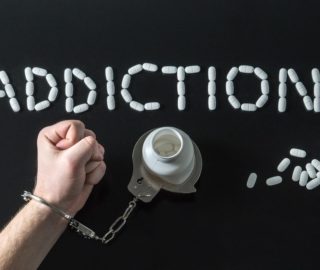A common question we get is whether Windward Way rehab center is qualified in treating addiction and depression. Absolutely yes. We realize that many of the men and women who enter our program of recovery have been diagnosed with co-occurring disorders (also called dual diagnoses). Our clinical partnerships will be able to provide an addiction treatment for depression in conjunction with our addiction treatment program.
Depression


Depression and Substance Abuse
Finding the Way Through Your Depression Addiction Treatment
If you’re feeling down, blue, have a lack of energy, or see little purpose to your life, you may be dealing with a diagnosable mental illness alongside your substance abuse. Windward Way knows how to treat depression effectively through the vast collection of treatment modalities we use. If you or a loved one suffers from depression and substance use, reach out today so we can craft an individualized plan for you. Call us: (855) 491-7694.
A New Life at Windward Way
A question weighing heavily on parents’, spouses’, or girlfriends’ minds is if depression causes addiction and substance use, or if it is the other way around. Frankly, it is difficult to determine, and it gets to be a bit of a “chicken or egg” question.
What we can say is that Windward Way can treat your (or your loved ones’) substance-use disorder and depression in both our drug and alcohol rehabs. We want to pass along the hope of a new life for the men and women we serve. Pick up the phone; call us now and we’ll show you how we can help: (855) 491-7694.
Information about Depression and Addiction
The purpose of a rehabilitation program for substance abuse is to help patients stop addictive behavior and give them the tools and guidance to turn their lives around. But in the case of those with co-occurring disorders, making the first step towards getting better can be extremely challenging.
The problem with co-occurring conditions is that both disorders tend to exacerbate one another, making it difficult to differentiate between the symptoms caused by one affliction from the other. For instance, people who want to escape the effects of depression with self-medication often find themselves in a vicious cycle that only exacerbates and perpetuates their condition.
What Is Depression?
Unlike the ordinary feelings of sadness, grief or nostalgia that most people will experiment at some point during their lives, clinical depression is a severe medical condition that can affect an individual’s life. According to the World Health Organization, more than 350 million people suffer from depression worldwide. Because “feeling a little sad” is not considered a serious health problem, and depression is still treated as a light topic, over 50% of the people who struggle with this condition will never reach out to get help or receive treatment.
Depression causes pain and suffering not only for those diagnosed with the condition. It can also have a negative effect on their families and the communities in which they live. According to the Centers for Disease Control and Prevention, the economic impact of depression was $210.5 billion in 2010.
Depression disorders can range from mild to severe, and, unfortunately, for those that are dealing with substance abuse, depression can be a common co-occurring disorder. However, identifying it is not always easy. According to specialists, a person should experience at least five of the symptoms below for at least two weeks before deciding to seek treatment:
- Continuous feeling of sadness and hopelessness;
- Loss of interest in regular activities;
- Lack of energy and the feeling that even small tasks require too much effort;
- Sleep disturbances;
- Anxiety;
- Increased or decreased appetite and weight loss;
- Recurring feelings of guilt, worthlessness, and low self-esteem;
- Suicidal thoughts or attempts;
Some of the most common types of depression are:
- Major Depression;
- Persistent Depressive Disorder;
- Bipolar Disorder;
- Seasonal Affective Disorder;
- Postpartum Depression;
- Psychotic Depression;
What Does Self-Medication Look Like?
Self-medication describes the behavior of someone that self-administers substances, drugs or alcohol to treat their physical or psychological issues. A traumatic event, such as losing someone close, getting divorced, losing your job or being the victim of a violent crime is often the trigger that determines people to turn to substance use or alcohol to alleviate their pain.
The problem with self-medication is that the “benefits” are temporary and disappear as soon as the effects of the substance vanish. Moreover, the consequences on one’s health, such as rapid heart rate, increased body temperature, faster breathing, anxiety, irritability, and so on, will only make the matter worse than it already was.
What Are the Concerns of Drug Addiction?
Individuals use a variety of psychoactive substances to self-medicate themselves. Some of them include:
- Stimulant drugs used to increase energy and focus, like cocaine or methamphetamines
- Central nervous system depressants used to help with disruptive sleep patterns, anxiety, and elevate the mood, such as alcohol, benzodiazepines, or prescription sleep aids
- Opioid drugs used for relaxation, such as heroin or prescription pain relievers
- Marijuana used to increase relaxation
Anyone that suffers from physical or emotional discomfort or a mental health issue is likely to start using psychoactive substances as a way of self-medicating, exposing themselves to the risk of abusing them and developing an addiction over time. According to the National Alliance on Mental Illness, half of the individuals with a serious mental illness are likely to struggle with substance abuse during their lives.
How Are Co-occurring Issues Like These Treated?
A dual-diagnosis, also known as a co-occurring disorder, requires an integrated treatment to help the patient deal with both their substance abuse problems and mental health issues.This integrated treatment will focus on helping patients assess the role alcohol and drugs play in their life and learn more about how these interact with their mental illness. They will also get the support they need to continue their lives, set recovery goals, and achieve those goals.
A treatment plan starts with a thorough assessment of the patient, which is crucial for creating the individualized steps they have to take. There is no right or correct way of approaching someone that suffers from co-occurring disorders, so taking the patient’s specific conditions and medical history into consideration is paramount for developing the right treatment.
Self-medicating to treat the symptoms of depression can quickly spin out of control. However, it’s never too late for people with co-occurring conditions to get the support they need and turn their lives around.




